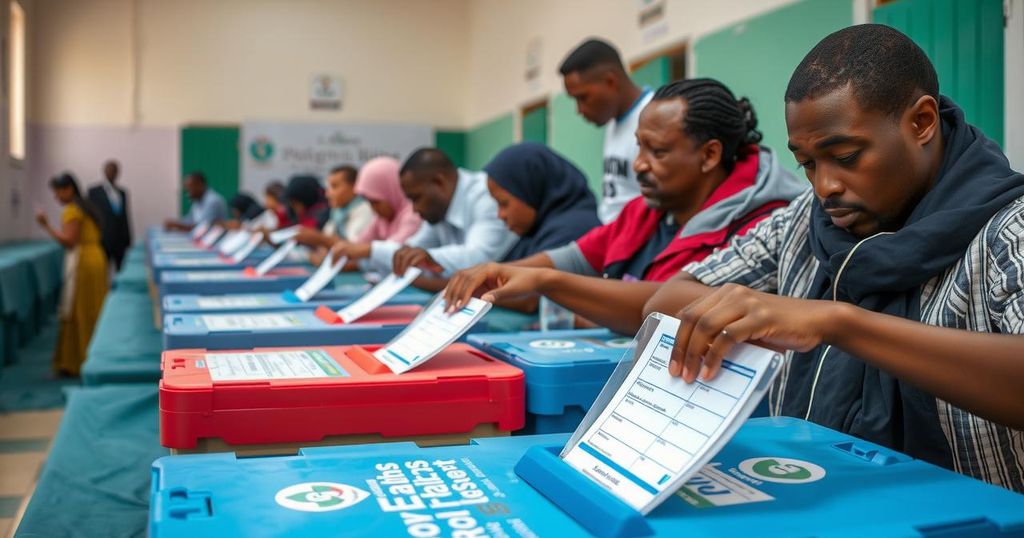Voters in Comoros are electing members to the 33-seat parliament amid allegations of electoral irregularities, a year after President Azali Assoumani’s disputed re-election. The process has seen opposition calls for a boycott yet includes numerous candidates approved by the Supreme Court. Assoumani’s governance faces scrutiny over alleged authoritarianism as political tensions rise leading to anticipated election results by Friday.
Voters in Comoros have commenced the electoral process for the nation’s 33-seat parliament, marking a significant political event a year after President Azali Assoumani’s contested re-election. Approximately 338,000 registered voters are participating in the election amidst allegations from opposition factions regarding widespread electoral irregularities. Polling stations opened early on Sunday, with a notable number of candidates, nearly 100, having been appointed by the Supreme Court to run for the parliamentary seats.
The political temperature in Comoros remains tense as President Assoumani faces accusations of authoritarian governance and speculation surrounding the potential succession of his eldest son, Nour El-Fath, intended for a future leadership role. Since assuming power via a coup in 1999, President Assoumani has secured victory in three subsequent elections. In a controversial move, he assigned his son extensive authority in 2024, granting him oversight of all government operations.
Dissension within the opposition ranks is evident, with certain parties, including Juwa, advocating for a boycott of the elections due to the alleged corruption of the electoral process. However, some factions, like the opposition Hope of the Comoros party, have chosen to participate, arguing that involvement in the elections will highlight the regime’s weaknesses. Hamidou Karihila, a contender for the Hope of the Comoros party, remarked, “The Azali regime is weakened … by participating in these elections we are contributing to further exposing the flaws in its system and accelerating its inevitable fall.” Results from this electoral exercise are anticipated by Friday, providing insight into the future political landscape of Comoros.
The Comorian political landscape has been significantly influenced by President Azali Assoumani, who has been in power intermittently since 1999. His recent actions have raised concerns about authoritarianism, particularly the appointment of his son to a prominent political position, which has led to speculation regarding a dynastic succession. The parliamentary election is taking place against a backdrop of heightened political tension, with significant opposition factions contesting the legitimacy of the electoral process. The previous parliamentary election occurred in January 2020, indicating a prolonged period without legislative renewal; hence, this election carries substantial weight for the nation’s governance and democratic engagement.
In summary, the parliamentary elections in Comoros offer a critical opportunity for the electorate to express their political preferences amid allegations of systemic corruption and authoritarian rule. With various opposition parties divided over participation, the upcoming results will not only determine the composition of the parliament but also potentially reshape the political dynamics under President Assoumani’s regime. The outcome of this electoral event will likely have significant implications for the future of democracy in Comoros.
Original Source: www.singletonargus.com.au






